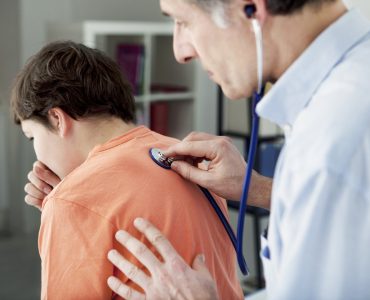Causes:
Umbilical Hernia occurs due to weakness in the area of the abdominal wall which is situated close to the naval.
In pregnancy, the umbilical cord goes through an aperture into the abdominal wall of the baby. This aperture should seal before birth, but in a few cases the muscles would not completely seal, creating a weak point which can lead to a build up of an umbilical hernia.
In most of the cases of umbilical hernia, the hernia goes in and the muscles would seal by the first year. There are rare chances of umbilical hernia in adults. But if it is present in adults there are few complications like, you cannot carry heavy weights, obesity would be a problem, constantly coughing, and numerous pregnancies.
Inguinal hernias occur due to weakness in an area of the wall of the abdomen which is situated close to the inguinal canal that is a tiny passage that goes through from the base of the abdomen to the groin.
This hernia in most of the cases is caused due to age. As you get older the muscles around the abdomen which are called the abdominal wall could have lost some amount of strength.
The risks of inguinal hernia are as follows:
If already suffered from hiatus or umbilical hernia,
If you are a male,
If you are white,
If you are 40 or above,
If you are suffering from COPD that is chronic obstructive pulmonary disease.
Incisional hernias, are a result of an operation wherein the surgeon would have to make a cut in the wall of the abdomen, would leave behind a region of scar tissue. This tissue in turn could weaken and stretch in course of time due to physical activities, resulting in Incisional hernia.
The risk factors that could have chances of the build up of an Incisional hernia after an operation are:
Pressurising so as to empty the bowels,
Constant coughing,
Having any other medical problem like diabetes, and
Lifting heavy objects.
Femoral hernias occur due to a weak area in the wall of the abdomen situated close to the femoral canal. This is a huge canal that goes around the inner of the leg and consists of blood vessels. These muscles could become weak in pregnancy.
Diagnosis:
Most of the hernias are detected by a physical check-up. The doctor would even try to put back the hernia, so as to check whether it is a reducible or an irreducible hernia.
Treatment:
Hernia is generally treated with a surgery. In the process of the surgery the surgeon would put the nudging tissue or intestine back into the wall of the abdomen. Then the muscles of the wall of the abdomen will be reinforced by securing a synthetic mesh.
The two ways in which a hernia treatment is done are:
Keyhole or Laparoscopic surgery in which the surgeon would create a small cut in the abdomen, and by using a specific camera used for this purpose and the specific surgical instruments do the operation, and
Open surgery in which a big cut is created on the abdomen and the surgery are performed.
Both of these operations have their own pros and cons. The open surgery takes a longer time to recover as compared to the laparoscopic surgery. The open surgery is done with local anaesthetic as compared to the laparoscopic surgery which requires general anaesthetic.
In laparoscopic surgery you tend to recover faster but there are a lot of complications like, the surgeon could damage the bowel by accident.
Generally hernia surgery is very successful which is about a success rate of 98% but about two percent might have a recurrence of hernia, the recurrence rate is the same in open and laparoscopic surgery.
Hernia trusses are specially made belts which were used earlier to help keep the hernia in its position. But nowadays doctors do not advise it, unless it is for a short period which is generally the waiting period before the surgery.
Prevention:
The chief risk for all kinds of hernia is a constant cough. Almost all the coughs are due to conditions that affect the respiratory system and the lungs. These complications are generally due to irritation or damage due to smoking.
In case you are a chain smoker it is advised to quit smoking.
Hernia II

Let us know if you liked the post. That’s the only way we can improve.











